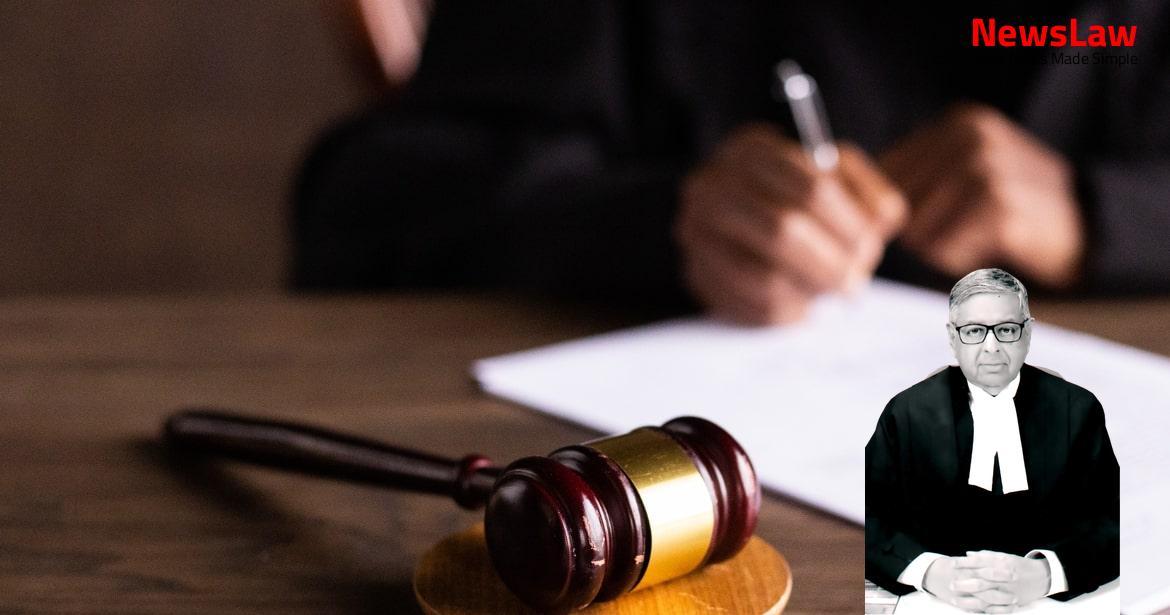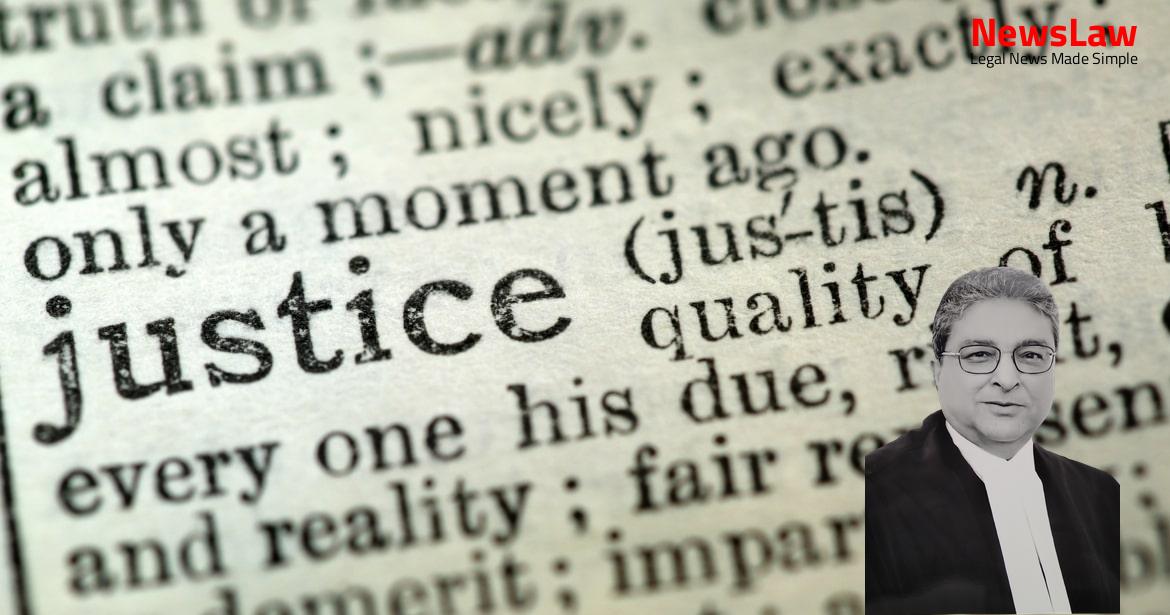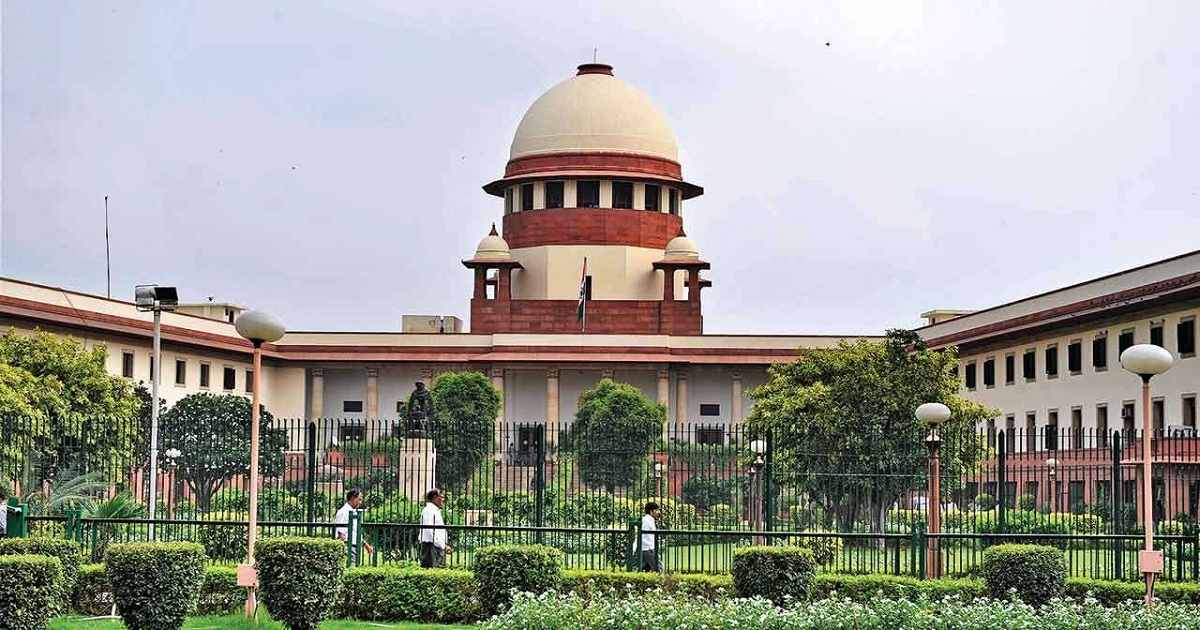Explore the in-depth legal analysis by the court regarding the trial court’s jurisdiction in imposing life imprisonment in a recent case. The court’s decision to uphold the sentence for the remainder of natural life is based on various legal principles and the severity of the crime committed. Let’s delve into the details of the court’s reasoning and conclusions on this important aspect of criminal law.
Facts
- Anju returned from the temple to find her children struggling for life on the cot.
- Accused appellant pleaded guilty initially and did not claim trial.
- Accused appellant resided on rent in the complainant Anju’s neighbourhood.
- Appellant had a history of quarrels with Anju and abuse towards the children.
- Accused allegedly enticed Anju to Punjab where the murder of the children took place.
- Accused appellant faced trial for administering celphos to the children, leading to their deaths.
- Appellant had previously fractured Anju’s son’s arm a month and a half before the incident.
- Children were taken to Civil Hospital where they were declared dead, post which police were informed and FIR was registered.
- Witnesses supported the complainant’s statement about the incident.
- Accused later claimed that he had been misled by government counsel to admit guilt.
- Histopathology reports confirmed cause of death as Aluminium Phosphide insecticide ingestion.
- The appellant was convicted under Section 302 IPC by the learned trial Judge on 1 July, 2013.
- The High Court confirmed the conviction on appeal on 13 December, 2018.
- The prosecution’s case involved the death of complainant Anju’s husband, Ajay Kumar, due to alcohol addiction.
- The appellant raised a plea regarding the cross-examination of prosecution witnesses PW-1 and PW-2 at the framing of charges on 29 April, 2013.
- The trial Court granted the appellant the opportunity to cross-examine the witnesses on that date.
- After cross-examination, the appellant pleaded not guilty on 14 May, 2013, and further witnesses were examined.
- The appellant did not move any application for recalling witnesses at any stage of the trial.
- The Court found no error in the guilt being recorded by the trial Court and confirmed by the High Court.
- The appellant denied the crime during his statement under Section 313 CrPC but did not provide any defense evidence.
- The appellant was sentenced to life imprisonment and a fine under Section 302 IPC on 1 July, 2013.
Also Read: Analysis of Consent Orders and Appellants’ Rights
Arguments
- The appellant’s counsel argued that the trial Court exceeded its jurisdiction by sentencing the accused to life imprisonment, which should have been done by the High Court or Supreme Court.
- Counsel referred to para 105 and 106 of the Constitution Bench judgment in Union of India Vs. V. Sriharan @ Murugan and Others 2016(7) SCC 1 for support.
- The judgment highlighted that imposing a sentence for the remainder of natural life is beyond the trial Court’s authority.
- The argument raised by the respondent’s counsel is that the life imprisonment imposed by the trial court should be upheld, considering the heinous nature of the crime committed by the appellant.
- The respondent’s counsel points out that the appellant did not raise the issue of punishment before the High Court, and this is the first time it is being raised before the current Court.
- While the legal principles support the appellant’s counsel’s argument, the prosecution has established a strong case against the appellant, including the motive for the crime and the brutal nature of the murders of two innocent children.
- Despite the trial court not being legally allowed to impose a sentence of remainder of natural life, the current Court finds it appropriate to confirm the sentence of imprisonment for life, meaning the remainder of natural life, given the circumstances of the case and the severity of the crime.
Also Read: Legal Analysis: Appointment of Sole Arbitrator Under 1996 Act
Analysis
- The power to impose a modified punishment in lieu of death penalty can only be exercised by the High Court and the Supreme Court.
- This power is derived from the Penal Code for specified offenses.
- No other inferior court in the country has the authority to impose modified punishments.
- In case of further appeal, only the Supreme Court can exercise this power.
- The court disagrees with the opinion expressed in Sangeet v. State of Haryana that depriving the appropriate Government of remission power by awarding sentences of 20 or 25 years, or without any remission, is impermissible.
- The court supports the view in Swamy Shraddananda (2) v. State of Karnataka that a special category of sentence, exceeding 14 years but not death, can be put beyond the application of remission.
- The question of whether sentences exceeding 14 years can be put beyond the application of remission is answered in the affirmative.
Also Read: Limits of Discretion in Civil Service Examination Policy
Decision
- The appeal has failed and is dismissed.
- Any pending application(s) have been disposed of.
Case Title: GAURI SHANKAR Vs. THE STATE OF PUNJAB (2021 INSC 91)
Case Number: Crl.A. No.-000135-000135 / 2021



